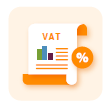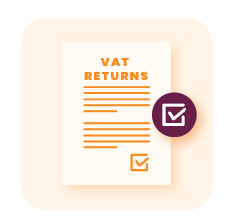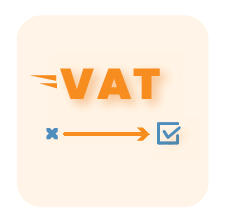VAT in Poland
In 1993, Poland replaced its outdated sales tax structure with the Value Added Tax (VAT) system. This change was made to bring Poland’s turnover tax rules in line with the standard VAT system used throughout Europe. Since then, various adjustments have been made to the Polish VAT regulations. The primary legal document governing VAT in Poland is the VAT Statute, enacted on 11 March 2004. It’s important to note that Poland’s VAT regulations are based on EU legislation, ensuring consistency in the basic principles of VAT taxation with other EU member states.
Everything you need to know about VAT registration, returns, Tax Representation (if applicable), and your legal duties in Poland is included in our comprehensive guide.
Selling in Poland?
Scope of Taxation
VAT is charged on the following types of transactions:
- VAT applies to these transactions:
- Provision of goods and services within Poland.
- Exporting goods beyond the European Union’s borders.
- Importing goods from nations outside the European Union.
- Acquiring goods from within the EU (intra-Community acquisitions).
- Supplying goods to other EU member countries (intra-Community supplies).
Poland – General VAT information
| Tax Authority | Ministry of Finance |
| VAT in local languages | PTU, VAT (Podatek od Towarow i Uslug) |
| Currency | Polish Zloty (PLN) |
| VAT number format | 1234567890 |
| PL1234567890 | |
| VAT rates | Standard 23%; Reduced 8%; and 5% |
| Zero-rated (0%) and exempt | |
|
Thresholds |
|
| Registration | |
| Established | PLN 200.000 (ca. EUR 47.000) |
| Non-established | None |
| Intra-Community acquisitions | PLN 50.000 (ca. EUR 11.900) |
| Intra-EU Distance sales and electronically supplied services to consumers (OSS) | PLN 42.000 (EUR 10.000) |
| VAT Group | VAT Group or commonly known as “tax capital groups” (Grupa Kapitałowa) is available in Poland but on an optional basis, on or after January 1, 2023. |
| Voluntary Registration | Allowed. A person or entity that does not exceed the mandatory VAT registration threshold (currently PLN 200,000 of turnover per annum) may voluntarily register for VAT but is not required to do so. |
| Recovery of VAT by non-established businesses | Yes |
| Compliance Returns and Supplementary Reports | |
| VAT Return VAT-7 (eligible for periods up to September 30, 2020) | 25th of the following month |
| Frequency | Monthly & Quarterly |
| European Sales and Purchase Listing (VAT-EU) | 25th of the following month |
| SAF-T (Standard Audit File for Tax) (Standard Audit for Tax)- JPK_VAT | 25th of the following month |
| Intrastat | 10th of the following month |
| Electronic Invoicing | Since 1 January 2020, all VAT-registered businesses in Poland are required to issue and receive invoices in electronic form through the national system known as “Krajowy System e-Faktur” (KSeF) and will be mandatory by January 1, 2024. |
Last updated: 08/01/2023
Disclaimer
The information provided by Global VAT Compliance B.V. on this webpage is intended for general informational purposes only. Global VAT Compliance B.V. is not responsible for the accuracy of the information on these pages, and cannot be held liable for claims or losses deriving from the use of this information. If you wish to receive VAT related information please contact our experts at support@gvc.tax








